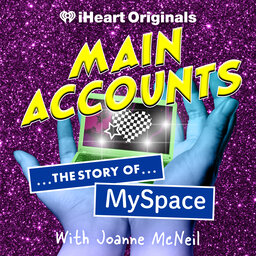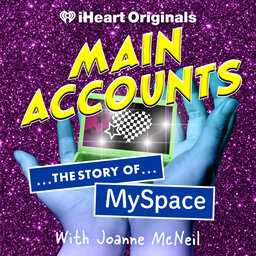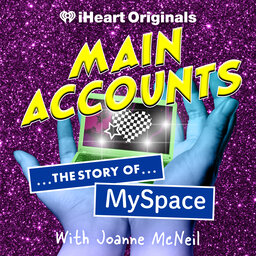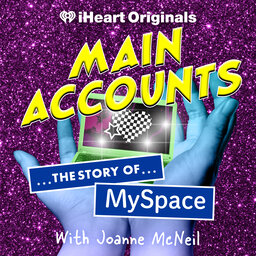4. Scene Kids
MySpace amplified the ongoing moral panic around teenagers on the internet. For young MySpace users, many of the trials of teenhood were transposed from the locker rooms, lunchrooms, and high school corridors to the realm of testimonials and Top 8. But was it really worse than any reality that teenagers throughout history have known?
Joanne is joined by Alexis Nedd (author of Don't Hate the Player) and Noor Al-Sibai (author of the forthcoming MySpace Scene Queens) to talk about growing up on MySpace.
 Main Accounts: The Story of MySpace
Main Accounts: The Story of MySpace


